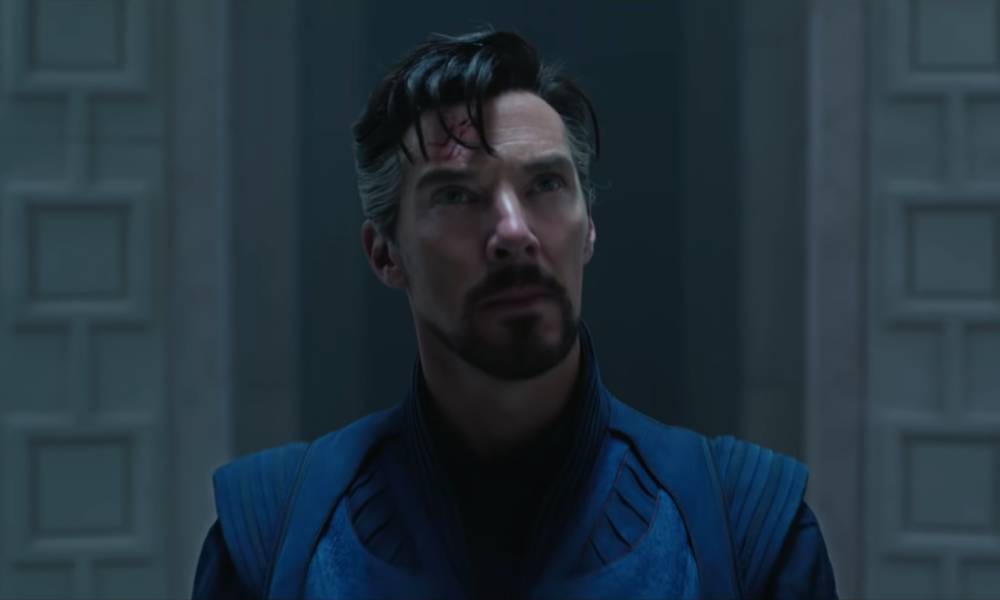Benedict Cumberbatch says it’s an “expected disappointment” that LGBT+ scenes could be censored in Doctor Strange in the Multiverse of Madness. (YouTube/Marvel Entertainment)
Benedict Cumberbatch said he is “emotional” that Saudi Arabia asked Disney to censor an LGBT+ character from the Doctor Strange sequel.
Saudi Arabia reportedly asked Disney to cut a 12-second scene in which queer hero America Chavez (Xochitl Gomez) referred to having two mothers before Doctor Strange in the Multiverse of Madness could air in the kingdom.
Nawaf Alasbhan, Saudi Arabia’s general supervisor of cinema classification, denied that the film had been banned outright, but he said that it was “very tough to pass something like this” in the Middle East. He added that Disney had said “they are not willing” to cut the LGBT+ scene.
Cumberbatch, who plays Dr Stephen Strange, told Metro.co.uk that he was “emotional” about Saudi Arabia’s response to the LGBT+ scene, saying it was ultimately an “expected disappointment”.
“It’s difficult not to become emotional about it, to be honest,” Cumberbatch said. “But it is, I’m afraid, an expected disappointment.”
He continued: “We’ve come to know from those repressive regimes that their lack of tolerance is exclusionary to people who deserve to be not only included but celebrated for who they are, and made to feel a part of a society and a culture and not punished for their sexuality.”
The Power of the Dog star described how the censorship felt “truly out of step with everything” that “we’ve experienced as a species” as well as “where we’re at globally as a culture”.
“But frankly, it’s just even more reason why this isn’t tokenism to include an LGBTQ+ community member,” Cumberbatch added.
He explained that Chavez was included in Doctor Strange in the Multiverse of Madness because of “how amazing she is as a character”. Cumberbatch said that the young hero’s sexual orientation is only “one aspect of her character”, which he believed is “all it should be”.
Ultimately, Benedict Cumberbatch said he wished that conservations about including LGBT+ characters in films wasn’t “politically charged” but said “we still have to fight” for inclusion and equality.
“We still have to push for inclusion and equality and I’m very glad in a small way but on a very big canvas, Marvel and Disney are doing that,” Cumberbatch said.
Homosexuality is strictly forbidden in Saudi Arabia, and LGBT+ folk face a host of punishments for living their truth including imprisonment, violent punishment or even the death penalty under the country’s harsh laws.
In 2019, two gay Saudi journalists sought asylum in Australia because they feared that they would be killed. The men were held in a detention centre after they arrived in Australia and were released after a dedicated campaign by Australia’s LGBT+ community.
Alsabhan said that Doctor Strange in the Multiverse of Madness will “never be banned” in Saudi Arabia as there is “no reason to ban the film” since it would be a “simple edit” to cut the LGBT+ scene.
He added that Saudi Arabia is “still trying” to negotiate with Disney, saying “we haven’t closed the door”.
Marvel’s recent superhero blockbuster Eternals was pulled from cinemas across conservative Gulf nations because it had LGBT+ characters. The film included Marvel’s first openly gay superhero Phastos (Brian Tyree Henry) and his husband (Haaz Sleiman).
Disney’s remake of West Side Story was also banned in Saudi Arabia and other Gulf nations because it featured a trans character. The musical adaption didn’t air in Saudi Arabia, the United Arab Emirates, Qatar, Bahrain, Oman or Kuwait because Disney refused to censor trans character Anybodys (Iris Menas).
Doctor Strange in the Multiverse of Madness is out in UK theatres on 5 May.
